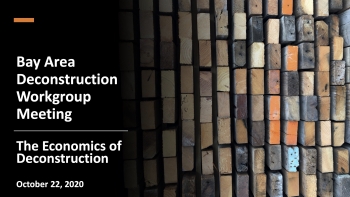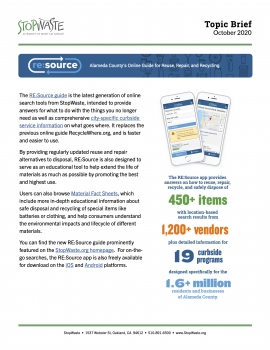Resource Library
KidScoop News in partnership with the Altamont Education Advisory Board created these earth tip activity pages that showcase and spotlight many of StopWaste’s student and teacher action heroes.
Read More
Based on the 5-Step Action Based Learning Model, The Collective Action Steps: Stop Food Waste Action Project offers a guide for teachers, students and families to engage with food was prevention activities that help reduce and amount of food that is wasted in our homes and in our communities.
Read More

Partner with StopWaste to bring academic fun to your classroom and join our community of committed teachers and families continuing to take action in distance learning. Teachers, students, and families can follow the steps outlined in this guide to take action at home and in their communities.
Read MoreWhat is coronavirus? What's the best way for you and your family to stay healthy? Explore the answers to these questions in this activity and coloring book developed by StopWaste school's partner, KidScoop News.
This activity book is available in both English and Spanish.
Read More
Wednesday, October 21, 2020
Read More
10:00 – 10:10 – Welcome & Brief Introductions, Angela Sandoval, Manager, and Timonie Hood, Zero Waste Section, U.S. EPA Region 9
- View Downloads
 Download Welcome Slides BADWG Oct 21 (1 MB)
Download Welcome Slides BADWG Oct 21 (1 MB) Download 1 Nicole Tai GreenLynx SF Bay Area.pdf (2.49 MB)
Download 1 Nicole Tai GreenLynx SF Bay Area.pdf (2.49 MB) Download 2 Karen Jayne Phoenix.pdf (1.86 MB)
Download 2 Karen Jayne Phoenix.pdf (1.86 MB) Download 3 Shawn Wood Portland.pdf (985.11 KB)
Download 3 Shawn Wood Portland.pdf (985.11 KB) Download 4 Anne Nicklin.pdf (2.35 MB)
Download 4 Anne Nicklin.pdf (2.35 MB) Download 5 Jeff Carroll Baltimore.pdf (133.26 KB)
Download 5 Jeff Carroll Baltimore.pdf (133.26 KB) Download 6 Neil Kaufman Denver.pdf (607.51 KB)
Download 6 Neil Kaufman Denver.pdf (607.51 KB) Download 7 Mike Gable Pittsburg.pdf (4.2 MB)
Download 7 Mike Gable Pittsburg.pdf (4.2 MB) Download 8 Alexandra Nicholaides IRS.pdf (250.19 KB)
Download 8 Alexandra Nicholaides IRS.pdf (250.19 KB) Download Closing Slides 10_21_20.pdf (607.31 KB)
Download Closing Slides 10_21_20.pdf (607.31 KB)
- View Downloads
 Topic Briefs
Topic BriefsThe RE:Source guide is the latest generation of online search tools from StopWaste, intended to provide answers for what to do with the things you no longer need as well as comprehensive city-specific curbside service information on what goes where. It replaces the previous online guide RecycleWhere.org, and is faster and easier to use.
Read MoreWorms are the poster child of healthy soil. They are the most efficient and hardworking invertebrates in the soil ecosystem for decomposing dead plants and animals and producing castings rich in organic matter. Worms happily dwell, burrow, and reproduce in soils with adequate moisture and organic matter.
Read MoreAre you a visual learner? If you took a big scoop of soil and hand sorted every little crumb into different categories, what would you find? Among many other things, you would probably have separate piles of sand, silt, and clay. The relative size of each pile of sand, silt, and clay would help determine the type of soil you have.
Read More